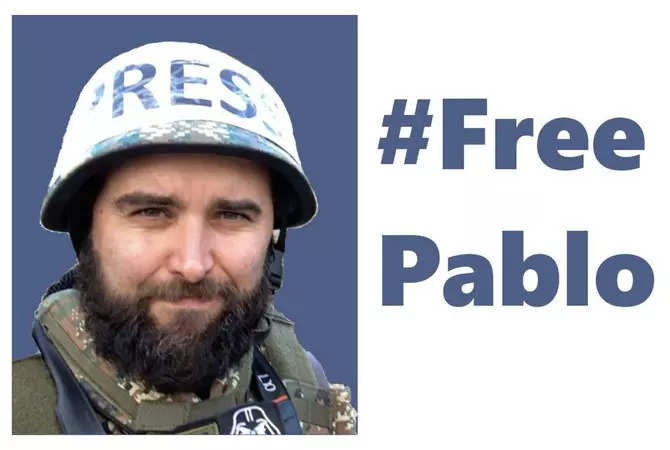González, a 42-year-old freelance reporter with a reputation for lively evenings in Warsaw, was accused of being an operative for the GRU, Russia’s military intelligence.The charges, which included “participating in foreign intelligence activities against Poland,” came as a shock to many who knew him as an affable, karaoke-loving journalist.
As part of a high-profile prisoner swap, González was released and flown to Moscow on Thursday, leaving behind a trail of unanswered questions. His release, part of the largest prisoner exchange since the Soviet era, has sparked speculation that he was indeed involved in espionage under the guise of journalism.
Born Pavel Rubtsov in Soviet Moscow, González moved to Spain with his mother at age 9, adopting the name Pablo González Yagüe. He built a career in journalism, contributing to Spanish outlets like Público and La Sexta, and later worked in Poland, where he gained a reputation as a well-equipped freelancer.
The circumstances of his arrest remain shrouded in mystery. Polish security services have kept the investigation classified, with little information released about the evidence against him. The arrest coincided with heightened concerns in Poland over Russian espionage and sabotage efforts.
Reports suggest that González, who also worked briefly for Voice of America, may have used his position to gather intelligence. Sir Richard Moore, head of Britain’s MI6, described González as an “illegal” who had been masquerading as a journalist. Meanwhile, independent Russian outlet Agentstvo reported that González had previously befriended and spied on Zhanna Nemtsova, daughter of the murdered Russian opposition leader Boris Nemtsov.
Poland’s decision to include González in the prisoner swap was reportedly influenced by its strategic partnership with the United States and the broader security interests shared between the two nations. Polish authorities have not sought restitution of the funds González was accused of misappropriating.
Supporters of González in Spain and beyond have expressed frustration over the lack of a public trial and the opaque handling of his case. Reporters Without Borders, which had called for either a trial or his release, now awaits a public explanation from González.
Jaap Arriens, a Dutch video journalist who worked with González, described him as a charismatic figure with a seemingly too-good-to-be-true lifestyle for a freelance journalist. Arriens noted that González often exhibited signs of affluence that seemed out of place for someone in his line of work.
As González returns to Russia, questions remain about his future and the true nature of his activities. His Spanish wife, who has been vocal in advocating for his release, hopes he will eventually return to Spain. The case continues to intrigue and perplex those who followed his journey from journalist to alleged spy.






